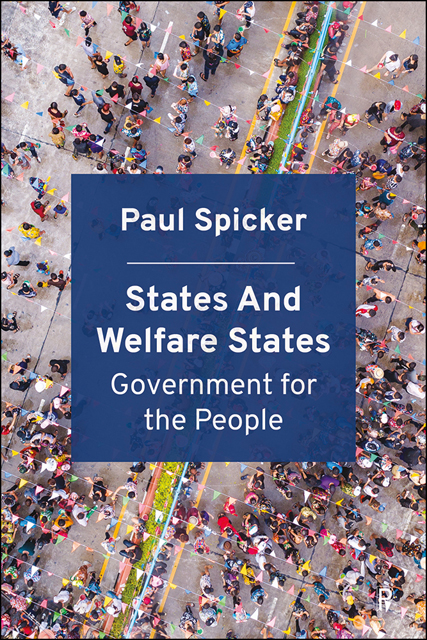9 - The commitment to welfare
Published online by Cambridge University Press: 20 June 2023
Summary
Summary
Normative explanations offer a rationale for the growth of welfare provision, in a way that empirical descriptions of influences alone cannot. Common guiding principles are solidarity, citizenship and democracy. The extension of social policy is commonly characterised by a movement from particular rights to extended solidarity, and ultimately to more comprehensive provision. It is not necessarily the objective of a government to support everyone, but partial coverage is difficult to defend, and once a general duty has been accepted, partial provision has generally given way to a progressively broadening extension of responsibility.
The commitment of states to welfare can be seen as a direct corollary of their claim to sovereign authority. ‘State sovereignty’, an international commission argued, ‘implies responsibility’.
Thinking of sovereignty as responsibility … has a threefold significance. First, it implies that the state authorities are responsible for the functions of protecting the safety and lives of citizens and promotion of their welfare. Secondly, it suggests that the national political authorities are responsible to the citizens internally and to the international community. … And thirdly, it means that the agents of state are responsible for their actions; that is to say, they are accountable for their acts of commission and omission.
This is a defensible moral position, but too many states have bent or broken moral codes in the past for references to moral obligations to be altogether compelling or convincing.
Some actions might perhaps be interpreted as an act of self-interest by governments. ‘Well organised states and wise princes’, Machiavelli tells us, ‘have always taken great pains not to make the nobles despair, and to satisfy the people and keep them content’. Clientelism, and support of the powerful, can partly explain an initial acceptance of responsibility: some governments direct services mainly to people who they expect to support them. The operation of democracy offers another partial explanation: accountability to an electorate can be seen as a mechanism that requires governments to be responsive to their citizenry. Both of these might be interpreted in terms of the pursuit of self-interest by the rulers, and in that respect they may seem to be similar motivations. The material difference between them lies in how many citizens are included.
- Type
- Chapter
- Information
- States and Welfare StatesGovernment for the People, pp. 113 - 126Publisher: Bristol University PressPrint publication year: 2022



